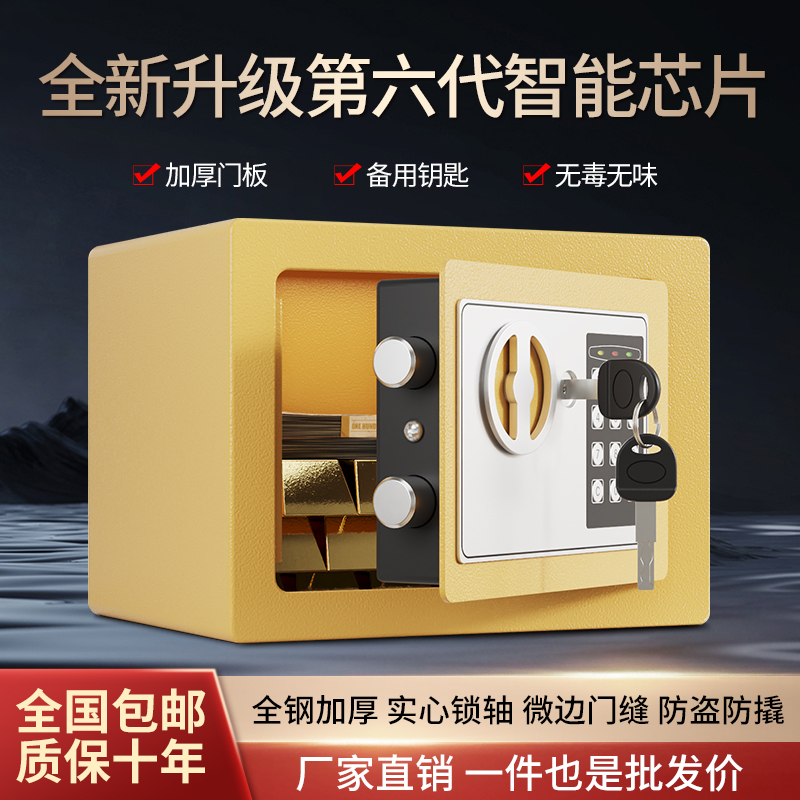防盗、防损、保安全:办公保险柜的选择与保养
甙邵登峰
2024-10-20 23:00:47
0次
防盗、防损、保安全:办公保险柜的选择与保养
在繁忙的办公室环境中,安全保障已成为了一个不可或缺的重要问题。为保护公司财产及机密信息的安全,选择一个优质的办公保险柜至关重要。本文将详细探讨如何选择与保养办公保险柜,以确保防盗、防损和保安全的目的。
一、办公保险柜的选择
1. 材质选择:优质的保险柜通常采用高强度合金或钢材制成,具有较高的抗破坏性。选择时,应关注产品的材质和厚度,以确保其坚固耐用。 2. 锁具类型:保险柜的锁具类型也是选择的关键因素。建议选择具有多重锁具的保险柜,如密码锁、指纹锁、电子锁等,以提高安全性。 3. 尺寸与容量:根据实际需求选择合适尺寸的保险柜。考虑存放物品的种类和数量,以及放置空间的大小,选择合适的尺寸和容量。 4. 品牌与信誉:选择知名品牌和具有良好信誉的制造商,可以确保产品的质量和售后服务。 二、办公保险柜的保养 1. 定期清洁:定期对保险柜进行清洁,保持其表面干净、整洁。使用柔软的布擦拭,避免使用化学清洁剂,以免损坏表面涂层。 2. 防潮防锈:保持保险柜内部的干燥,避免潮湿环境导致内部金属部件生锈。可以使用防潮剂或定期开柜通风,以保持内部干燥。 3. 密码保护:为确保保险柜的安全性,密码应定期更换,并确保只有授权人员知道密码。避免密码过于简单或与其他信息关联,以防泄露。 4. 检查维护:定期检查保险柜的各项功能是否正常,如锁具、铰链等。如发现异常情况,应及时联系专业人员进行维修。 三、翻译成英文 Security Protection: Selection and Maintenance of Office Safes In the busy office environment, security has become an indispensable and important issue. To protect the safety of company property and confidential information, it is crucial to choose a high-quality office safe. This article will explore in detail how to select and maintain an office safe to ensure theft prevention, damage prevention, and security. I. Selection of Office Safe 1. Material selection: High-quality safes are usually made of high-strength alloy or steel, which have a high resistance to destruction. When selecting, pay attention to the material and thickness of the product to ensure its durability. 2. Lock types: The lock type of the safe is also a key factor in the selection. It is recommended to choose a safe with multiple locks, such as password locks, fingerprint locks, electronic locks, etc., to improve security. 3. Size and capacity: Select the appropriate size of the safe according to actual needs. Consider the types and quantity of items to be stored, as well as the size of the placement space, to choose the right size and capacity. 4. Brand and reputation: Choose well-known brands and manufacturers with good reputation to ensure product quality and after-sales service. II. Maintenance of Office Safe1. Regular cleaning: Regularly clean the safe to keep its surface clean and tidy. Use a soft cloth to wipe, and avoid using chemical cleaners to avoid damaging the surface coating.
2. Moisture and rust prevention: Keep the interior of the safe dry to avoid moisture causing internal metal parts to rust. You can use a moisture absorber or regularly open the cabinet to ventilate to maintain internal dryness. 3. Password protection: To ensure the security of the safe, passwords should be changed regularly and only authorized personnel should know the password. Avoid using simple passwords or those related to other information to prevent leakage. 4. Check and maintenance: Regularly check the functions of the safe, such as locks, hinges, etc., to ensure they are normal. If any abnormalities are found, contact a professional for repair in a timely manner.相关内容
热门资讯
密码锁、电子锁,哪种类型的办公...
本文讨论了密码锁和电子锁在办公保险柜中的应用,指出每种锁的优缺点及适用场景。密码锁物理安全高,但需防...
密码、指纹、钥匙:解锁保险柜的...
本文介绍了密码、指纹识别和智能钥匙等现代科技解锁保险柜的多种方式,探讨了它们的特点和适用场景。无论选...
高效办公的秘密武器——智能保险...
智能保险柜是现代办公中高效安全的文件存储工具,通过正确选择、设置密码、合理使用特殊功能及维护保养等措...
办公室的守护神:保险柜产品特点...
保险柜产品以高强度材料和先进技术保障安全,广泛用于办公室,可保护财务资产、文件资料和贵重设备。在快速...
密码保险柜使用注意事项及常见问...
密码保险柜使用注意事项包括密码设置、放置位置、操作方式等,并解答了常见问题如忘记密码、无法打开和清洁...
防止数据泄露的利器——办公保险...
本文介绍了办公保险柜在防止数据泄露中的重要性,其采用先进技术、物理保护和权限管理等手段确保数据安全,...
打破传统,迎接智能办公时代——...
随着智能办公时代的到来,保险柜需进行革新升级。智能保险柜采用生物识别、远程控制等技术,提高管理效率和...
保险柜的种类与特点,你了解吗?
保险柜种类多样,包括家用、商用、防爆防砸及移动式等,具有高安全性、多种尺寸和类型、优质材料及便捷操作...
打造安全办公环境,保险柜的选择...
摘要:打造安全办公环境需注重保险柜的选择与配置。应选坚固耐用、具备多锁系统、防火防潮的保险柜,合理配...
办公桌上的守护神——如何选择合...
本文介绍了如何根据实际需求选择合适的保险柜,包括明确需求、了解不同类型、考虑材质和结构、关注品牌和服...



